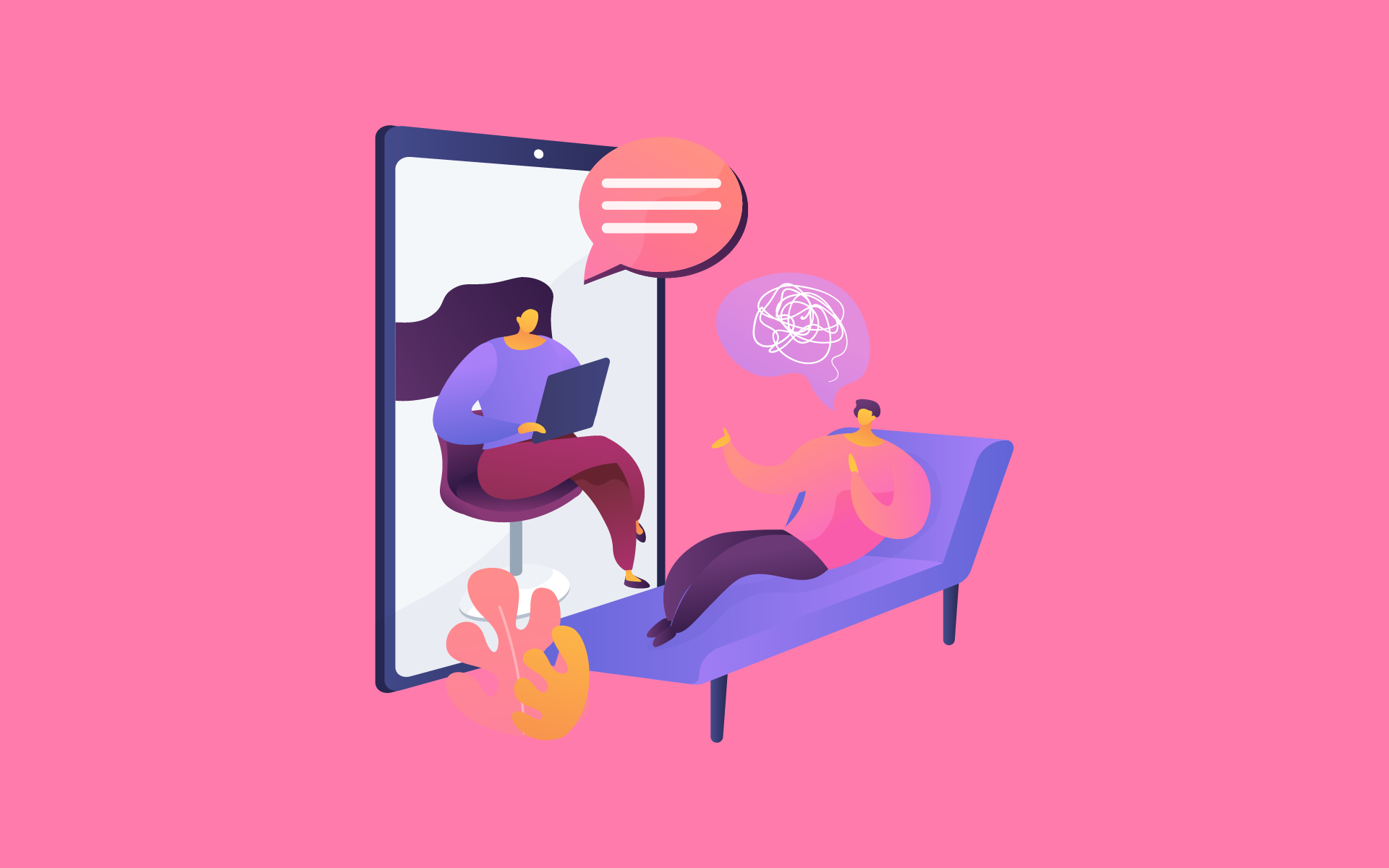While the rest of the country was baking banana bread and counting their remaining rolls of toilet-paper during the COVID-19 lockdown, Marc Knowles was hard at work coding an app.
Marc’s “ideas detector” is always switched on. The 28-year-old tech entrepreneur from Cape Town goes through life searching for opportunities, analysing shifting patterns, and scrutinising behavioural changes. For disruptors like him, the pandemic was a goldmine of possibilities.
Marc and his business partner, Cameron Calder, saw that telehealth was “a clear directional arrow of progress”. They recognised the anxiety, stress, and isolation facing the modern workforce.
Patients and healthcare practitioners were looking for alternatives to physical consultations but were struggling to find an effective way to connect with each other.
“Doctors spent thousands on software without focussing on the most important thing, the client’s experience,” says Marc.
He and Cameron wanted to connect remote workers battling with mental health issues to therapists for online sessions on demand.
“We wanted to make the experience simple, so a person can connect to a live call with a therapist within three clicks. If we did that, I knew our product would be hugely impactful.”
For the world, this was a great idea. For Marc, it was personal.
He’d recently returned from a stint in Canada’s booming tech start-up world, working 996 (9am to 9pm, six days a week), and was suffering from burnout and panic attacks.
“I wanted to build a solution I could use,” he says. “Anxiety, online burnout, self-doubt, screen addiction, impostor syndrome, and social pressures are crippling our generation.”
And that’s how Ollie Health was born.
The app was named after Ollie, his Pomeranian puppy.
“People had such a positive response to Ollie, which was the brand feeling I wanted to get across,” explains Marc.
“I didn’t want it to be called ‘pocket therapist’. I wanted something that was about reaching out to a friend, and that was Ollie.”
The pair signed up companies wanting to provide psychological support to their employees, and recruited therapists who understand the mental health issues facing modern day workers. They launched Ollie in mid-2020.
The app got a lot of traction … at first.
Unfortunately, people booked only one session, and didn’t rebook.
Marc and Cameron thought the problem was with their app, but when they asked users what was wrong, they discovered people weren’t rebooking because of the cost of therapy.
“If you’ve had a salary cut and you’ve got bills, will you spend R1,500 a week to see a therapist? Probably not,” says Marc.
At this point, most people would throw in the towel.
But Marc and Cameron aren’t most people.
They had a vision, and they were desperate to make it work.
“Being in Canada made me realise South Africans have natural grit and problem-solving skills because in this country if you don’t adapt, you die.”
So instead of letting Ollie die, the pair focused on adapting and started thinking of how they could change the pricing of therapy.
They came up with a credit model, where companies and individuals could subscribe to Ollie.
A subscribing company receives a mental health wallet with credits, which anyone from the CEO to contract workers can use to book their own instant remote therapist.
While companies are their primary clients, individuals can also sign up.
“An individual user’s subscription, which is the same cost as a Netflix subscription, gives you access to credits that renew every month,” Marc explains.
Ollie relaunched on January 2, 2022.
“We thought everyone would be on leave, but two days later bookings came through, and then repeat bookings. We saw that the demand for mental health support, especially with remote workers, was massive.”
Marc says Ollie has helped overcome barriers of traditional counselling, where employees must go to a physical office.
That process takes time, and can be intimidating. As Marc puts it, you may book a physical appointment when you’re struggling mentally, but if the session is in two weeks, you have to grit your teeth and get through it. And in two weeks, you may be in a different space.
“The fact that you can book a session for an hour from now means therapists are there when you need them,” says Marc. That’s the power of virtual therapy. You can be anywhere in the world, and at the exact moment you need help, you can get it.
A year after launching, 150 companies in 16 countries had signed up to Ollie, with therapists in four countries, and the platform had clocked over 100,000 therapy minutes.
According to Marc, at the heart of Ollie’s success is its simplicity, anonymity, and affordability.
Because of the stigma around men seeing therapists, Marc and Cameron were surprised to discover that most bookings were from men.
“Men aren’t always willing to reach out and be vulnerable, but they want to better themselves, grow in their career, and build healthy relationships,” says Marc. “And Ollie allows them to get help to do that.”
Marc says his own therapy helped him realise he needed “to do a 360 of my life”.
“I learnt that when you push so hard at one thing, you sacrifice a lot of other things. I realised what the important things are. Family, relationships, and having a purpose.”
Part of Marc’s purpose is to rebrand what therapy means for his generation.
“Everyone should have their own remote therapist, because it will help you become the person you want to become and will supercharge your career growth. Getting help is not a weakness. It’s a superpower.”

Leave a Reply